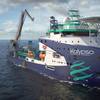UN Transforms Business' Commitment to Sustainability
Sustainability is now firmly on the global business agenda, but there is an urgent need to turn words into action. This is a key conclusion in the independent report; “Impact – Transforming Business, Changing the World” prepared by DNV GL on behalf of the United Nations Global Compact. The report concludes that the UN Global Compact, as the world’s largest corporate sustainability initiative, and the business community have had an impact on the development of sustainability over the past 15 years. Recommendations that must be implemented to accelerate progress towards a more sustainable future are also highlighted in the report.
“Our assessment shows there has been a clear shift in sustainability development, but in the future the necessary transformative change will only become a reality if we are all able to speed up, scale and strengthen our efforts. It's not sufficient that business alone is mobilizing. We must therefore offer arenas for collaboration, including for policy makers, science professionals and society at large,” says Dr Henrik O. Madsen, Group President & Chief Executive Officer at DNV GL.
"This report confirms that the tide is turning in corporate practices. Over the past 15 years, companies around the world have been awakening to their role in society and starting to make important strides to operate more responsibly and innovate for a greener, more sustainable future. But there is still a long way to go, and the UN Global Compact remains strongly committed to mobilizing business everywhere to be a force for good," states Georg Kell, UN Global Compact Executive Director.
Significant changes we have seen over the past 15 years (report findings):
Sustainability is gradually penetrating deeper into markets and sectors all around the world. Global Compact signatories are present in 156 countries, and 25% of the world’s largest companies have joined.
A deeper understanding of the complexity and interdependence of global challenges has emerged. Partnership and collaboration are the new norm. More sustainability issues - equality, climate change and corruption - are now on the corporate agenda because they impact performance.
Business has become more strategic, systematic, integrated, transparent and collaborative regarding sustainability.
Leading companies are ahead of regulation and drive the debate to make regulations smarter. Yet these companies are in the minority, and less progressive companies are blocking positive change.
The financial sector shows positive developments – through its support for the Principles for Responsible Investment, rapid development of green bonds and Sustainable Stock Exchanges Initiative. The local Global Compact networks are very effective in engaging local businesses around the issues that are important for that particular country or region.
The jury is still out on whether a sustainable and inclusive economy will be achieved. But the UN Global Compact has undoubtedly helped to change the understanding of corporate responsibility all around the world.
Some companies are talking about a 'net zero footprint' in terms of carbon, water and waste, and some leaders have established concrete goals for reaching zero footprint levels. This is highly promising and such companies will get many followers.
Leading companies are also beginning to look for ways to turn sustainability risks into new business opportunities.
Key changes we need to see over the next 15 years:
Dr Madsen continues “If we want to see radical transformation, probably even creative destruction, change will need to happen simultaneously across all of three interconnected pathways towards 2030:”
“Sustainability is the business of business” - we need to mobilize the vast majority of companies. Sustainability must be part of daily business - embedded in our business models and long-term goals and making sure we add value to society.
“Breaking down barriers, energizing positive drivers” - how we can enable conditions to speed up change. It is a matter of better and smarter governance and regulations. Providing the right directional support and shifting investor practices.
“New thinking for a new reality” - changes will come. We should inspire change by showcasing new business opportunities and sustainable solutions. And we should demonstrate that business is ready for the transformation.
Most important measures for fast mobilization:
Dr Madsen points out: “I'm certainly optimistic about the willingness of business to be a partner in solving the serious problems of today’s world and to lead us onto a sustainable pathway. Our assessment shows that most business leaders now have sustainability on their agenda. However, there is still the question of whether we can mobilize fast and broad enough. We therefore endorse the following measures:”
The business sector can like no other contribute human and financial capacity, technology and innovation and should step up the efforts.
Progressive companies are already urging governments to enact policies that support sustainable business practice. One example is to establish a price on carbon – regionally or globally. This would be a powerful signal.
Responsible investment is another key measure. We should also stop absurd and detrimental subsidies that hinder progress.
Gender equality is a critical part of the solution. We will see a multiplier effect if we invest in women's education and economic empowerment and in securing women’s rights.
Leaders across all domains must take responsibility for steering the world towards a resilient, stable and equitable future.
“Finally, we must commit to co-investing in the societies in which we operate. This also entails paying taxes to the communities where we operate and make our profits and stopping any offshoring of environmental and social responsibilities to less regulated markets. With this, we can begin to demonstrate true business statesmanship,” concludes Dr Madsen.













